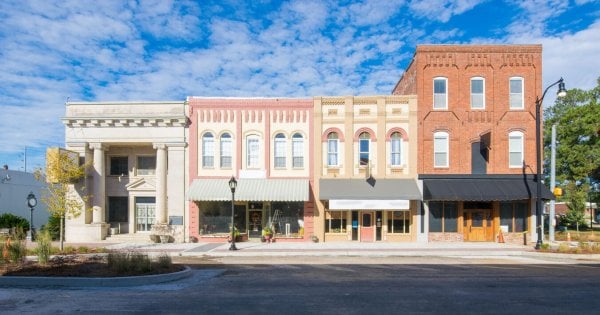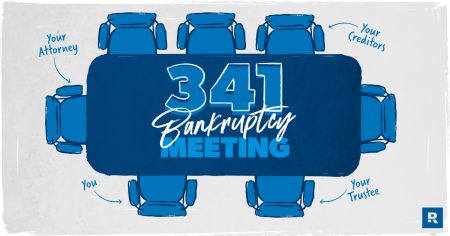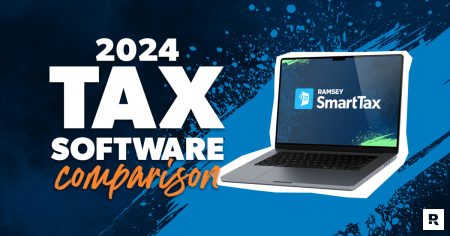A variety of reasons support buying a commercial property for your business. One is that it can give you the flexibility to adapt the building to your needs or expand your operations. Another compelling argument in favor of purchasing a commercial property is that doing so can help you build equity, which is an obvious disadvantage to renting.
Considering whether to buy or rent a commercial space can be difficult, and it is worth noting that those who rent will always, in a sense (and cents), be at the mercy of their landlord. If you have an opportunity to buy commercial real estate with a fixed-rate loan, however, you can make your expenses easier to manage and avoid the risk of either having to pay more in rent or move your business elsewhere.
Purchasing a commercial property for your business could also offer you an array of potential tax benefits and deductions. This includes depreciation and the chance to deduct the interest portion of the mortgage payment. In addition, when you locate your business in the commercial real estate investment, you could potentially deduct the maintenance expenses from the business income. Also, there is a chance you could pay rent to yourself as the property owner, and the rent would be a deduction.
What is commercial real estate?
Commercial real estate refers to properties that are used for business purposes. This type of real estate includes spaces where businesses operate, whether they’re retail stores, offices, warehouses, or other types of buildings that generate profit.
Types of commercial real estate.
- Multifamily – As the name implies, this refers to residential investment properties housing multiple families, such as apartment complexes, duplexes, triplexes, and even assisted living communities.
- Office – This refers to large, small, or medium-sized buildings capable of supporting a variety of businesses with a need for space, such as medical providers, attorneys, or accountants.
- Retail – This type of commercial real estate refers to a space that a consumer-facing business may be interested in, such as a coffee house, department store, or a suite in a strip mall.
- Industrial – This term refers to warehouses, production facilities, and distribution centers—basically any type of building a manufacturer may need.
- Hospitality – This area generally covers buildings that are either the current or former home of businesses in the service industry, such as restaurants, hotels, bars, or resorts.
- Special Purpose: Properties specifically designed for a particular business, like hotels, schools, or self-storage facilities.
Within the confines of commercial office real estate, there are three different types.
- Class A refers to commercial real estate of the highest possible quality. These are usually newer buildings in a prime location and in good condition.
- Class B refers to middle-range commercial properties that may be older and lower in price compared to Class A, making them a good target for renovation or restoration.
- Class C commercial real estate refers to older properties in a less-than-optimal location with extensive wear and tear.
How to buy commercial real estate for your business.
Consider the following elements when beginning the purchase process.
1. Identify property requirements.
Understanding your personal goals as a commercial real estate investor is essential, as your goals will influence the property requirements. Are you looking to build a brand or a retail establishment? How much foot traffic are you hoping to attract?
When looking into commercial real estate, consider the following:
- Budget: Know what you can afford before you start looking.
- Zoning Laws: Ensure the property is zoned for your type of business.
- Accessibility: Make sure the location is easily accessible for your customers and employees.
- Future Growth: Think about your future needs and whether the property can accommodate them.
2. Secure financing.
There are a variety of commercial real estate loans available with different terms and commercial mortgage rates. Bear in mind that, unlike a personal mortgage that may be able to cover up to 100% of the cost of the property, a commercial mortgage will typically cover only up to 75% to 80% of the cost of the property.
Commercial mortgage
This refers to any sort of financing where the loan is secured by the value of the underlying commercial asset, which could include a warehouse, apartment complex, office building, shopping center, etc.
SBA 504 loan
The SBA 504 loan is a loan program administered by the Small Business Administration (SBA), in which small business owners partner with Certified Development Companies (CDCs) to secure financing. Usually, a 504 loan will include a first mortgage for around 50% of the cost, from a third-party lender. The SBA will back a second mortgage, up to 40%. This would only leave the remaining 10% to the small business owner, allowing that individual to free up capital. The loan can be used to expand, buy real estate, or purchase equipment.
Hard money loan
This type of financing originates from private individuals or businesses, instead of traditional financial institutions. Generally, a hard money loan refers to a nonconforming loan that can be used to purchase a commercial or investment property, often with a much shorter duration and a higher interest rate compared to other options. A physical asset or property is usually required to serve as collateral for this type of loan.
3. Enlist an experienced team.
Buying commercial real estate can be a complex process, so it’s essential to have a team of experienced professionals to guide you. Here are the key people you should consider involving:
- Real Estate Agent/Broker: Specializes in commercial properties and helps you find suitable options. They can negotiate on your behalf and provide market insights.
- Attorney: A lawyer with expertise in commercial real estate can help you with contracts, zoning issues, and legal due diligence.
- Commercial Lender/Mortgage Broker: They can assist in exploring financing options and securing a commercial real estate loan that fits your needs.
- Accountant: Provides financial advice, helps with tax considerations, and aids in determining the property’s financial viability.
- Property Inspector: Conducts a thorough inspection of the property to identify any structural or maintenance issues that need to be addressed.
- Appraiser: Offers an independent assessment of the property’s value to ensure you’re making a sound investment.
- Contractor: If the property requires renovations or modifications, a reputable contractor can estimate costs and manage the construction process.
4. Evaluate the value of the property.
Determining the value of a commercial property is a critical step in the purchasing process. Here’s how you can approach it:
- Comparable sales (Comps): Look at recent sales of similar properties in the same area. These comps provide a benchmark for the current market value.
- Income approach: Evaluate the potential rental income the property could generate. This method involves calculating the net operating income (NOI) and dividing it by the capitalization rate to estimate value.
- Cost approach: Consider the cost of replacing the building with a similar one, including the value of the land and the depreciation of the current property.
- Professional appraisal: Hire a certified appraiser who specializes in commercial real estate. An appraisal will give you a detailed report on the property’s value based on various factors, including location, condition, and market trends.
- Future potential: Assess the property’s potential for appreciation. Investigate local economic growth, infrastructure projects, and zoning changes that might affect the property’s value over time.
- Physical condition: Conduct a thorough inspection to identify maintenance or structural issues. Properties in better condition typically command higher prices.
- Market conditions: Stay informed about the current real estate market trends and cycles. The value of commercial properties can fluctuate based on supply and demand dynamics.
5. Make an offer.
Once you’ve researched the property you’d like to purchase, you can begin the offer process.
- Determine your offer price: Based on your evaluation of the property’s value and your budget, decide on an initial offer price. Keep in mind that this price should be competitive but also leave room for negotiation.
- Prepare a letter of intent (LOI): Draft a Letter of Intent outlining your proposed terms and conditions. The LOI should include the offer price, payment terms, due diligence period, and any contingencies such as financing or inspection results.
- Submit the LOI: Present the Letter of Intent to the seller through your real estate agent or broker. This document serves as a formal expression of your interest and opens the door for negotiations.
- Negotiate terms: Be prepared to negotiate with the seller. This may involve several rounds of counteroffers until both parties agree on the final terms. Your real estate agent or broker can be invaluable in guiding you through this process.
- Draft the purchase agreement: Once both parties agree to the terms, have your attorney draft a formal purchase agreement. This legal document will outline all the specific details of the transaction, including contingencies, closing date, and any special conditions.
- Due diligence period: After the offer is accepted, you’ll enter the due diligence period. During this time, conduct thorough inspections, review financial records, verify zoning laws, and ensure there are no hidden issues with the property. This period allows you to confirm that the property meets your expectations before finalizing the purchase.
- Secure financing: Work with your commercial lender or mortgage broker to finalize your financing arrangements. Ensure all necessary documents and approvals are in place to secure the loan.
- Close the deal: If everything checks out during the due diligence period and your financing is secured, proceed to the closing. This stage involves signing all required documents, transferring funds, and obtaining the keys to the property.
Ready to start looking into financing for a commercial property? Learn more about commercial mortgages.
Quickly compare loan offers from multiple lenders.
Applying is free and won’t impact your credit.
Information provided on this blog is for educational purposes only, and is not intended to be business, legal, tax, or accounting advice. The views and opinions expressed in this blog are those of the authors and do not necessarily reflect the official policy or position of Lendio. While Lendio strives to keep its content up-to-date, it is only accurate as of the date posted. Offers or trends may expire, or may no longer be relevant.
Read the full article here










